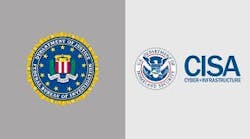WASHINGTON (AP) - U.S. states are threatening to challenge in court or even disobey new orders from Congress to make driver's licenses more uniform and to verify applicants' citizenship or legal status.
Some states are concerned they'll get stuck paying a large tab to implement the new rules, while making the process of getting a driver's license a bigger headache for law-abiding residents.
"Governors are looking at all their options. If more than half of the governors agree we're not going down without a fight on this, Congress will have to consider changing this unfunded federal mandate," said Arkansas Gov. Mike Huckabee, vice chairman of the National Governors Association. A Huckabee aide said the options included court action.
States also worry the new rules will force applicants to make more than one trip to motor vehicle departments, once to provide documents like birth certificates and a second time to pick up the license, officials said.
"What passed is something that will be an enormous amount of work, and it's questionable what it's going to yield," said Democrat Matt Dunlap, Maine's secretary of state. "Is it going to yield national security, or is it going to be hassle for people already complying with the law?"
The immigration requirements were attached to an US$82 billion (euro64 billion) spending package for military operations and construction in Iraq and Afghanistan that the House of Representatives passed last week. The Senate is expected to vote this week and send the bill to U.S. President George W. Bush.
States will have three years after the president signs the bill to comply. If they don't, their residents won't be able to board planes or enter federally protected buildings.
"We'd like to work with people to implement the needed reform and will be very disappointed if these groups thwart these important rules," said Jeff Lungren, spokesman for Wisconsin Republican Representative James Sensenbrenner, who wrote the new requirements.
Sensenbrenner said last week that waiting a little longer in line was "a small price to pay" to prevent terrorism.
All but one of the 19 hijackers in the Sept. 11, 2001, attacks had some form of U.S. identification, some of it fraudulent, the Sept. 11 Commission found. The commission recommended the federal government set standards for identification documents, including driver's licenses.
The bill allows the Homeland Security secretary to offer grants to help states to comply, but doesn't provide money. Virginia's motor vehicle department estimated it would have to spend US$237 million (euro185 million) to comply.
States also question how they will verify birth certificates, the appearance of which varies widely by state and county.
Another concern is preventing identity theft if licenses carry more information, said Michael Balboni, a Republican New York state senator.

